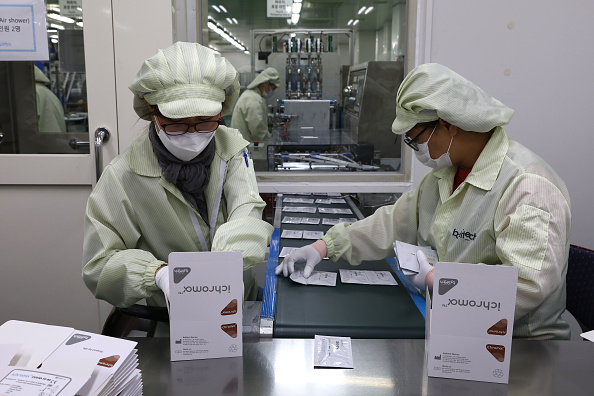HOW IMMUNITY FROM VIRUSES IS BUILT
Viral immunity is a bit of a finicky phenomenon. For some reason, our bodies can build long life immunities to some viruses, while they struggle to do the same for other viruses. If a human is infected with the chickenpox once, he or she will never catch again during their lifetimes. Nevertheless, our immune systems have trouble with other viruses, for instance influenza A viruses have a high rate of reinfection.
When a virus enters the body, two processes occur. The first process is carried our by innate response mechanism of the immune system, which produces macrophages, neutrophils, and dendritic cells to slow down the viruses spread in the body. This innate mechanism is non-specific and will be triggered once any virus is detected, moreover it might even be successful in stopping infected people from developing symptoms associated with the virus. A problem with this innate response is that it doesn’t ensure future immunity from the virus.
The second mechanism that comes after this process is the adaptive response, which develops antibodies that will bind to the virus and fight it, and T-cells might even be produced to eliminate cells that are infected with the virus. If the adaptive response is strong enough, then it will have built a lasting “memory” that will enable our immune systems to quickly recognise and destroy the virus should it re-enter the body. This adaptive response is not a quick process, according to a science report published in the BBC; it can take up to 10 days for our immune systems to produce the anti-bodies against the virus. Furthermore, evidence has shown that the patients who have recovered from bad cases of the virus are the ones who develop the strongest immune response against it. Not enough evidence sufficiently demonstrates that a recovered patient who only showed mild symptoms has built a similar robust immune response.

IMMUNITY PASSPORTS: AN ABSURD IDEA IN THE MAKING?
Earlier in the year, the British government attempted to tackle the pandemic through a strategy of herd immunity. Herd immunity was seen an alternative strategy that would help keep the economy moving despite the pandemic. However, after it became evident that the strategy would have a devastating toll on human life the government made a U-turn and implemented lockdown measures in a matter of days. As of the writing of this piece, the only other major Western state that is following the herd immunity strategy is Sweden. While the idea of herd immunity might have seemed scientifically sound on paper, it did raise many ethical questions as it made it seem like governments were treating the pandemic as a controlled lab experiment rather than a crisis that is costing human lives.
Tough the strategy of herd immunity has for the time being been shelved, there is a new idea floating around that is based on the idea that some people have built an immune response to the virus. As part of their plans to loosen social distancing measures and reopen their economies, some governments are considering issuing “immunity passports” or “immunity certificates” to those who have recovered from the coronavirus. Those with the certificates would be allowed to go back to work, since, in theory, he or she would not be at risk of reinfection.
WOULD IMMUNITY PASSPORTS WORK?
In China, where the virus originated from, authorities have issued phone apps that can be seen a prototype form of immunity passports. In the apps, individuals are given different QR codes that are colour coded. People who are assessed to be healthy are given a green QR code, which enables them to travel freely within the province. Yellow QR codes mean that the person may have come in contact with someone infected with the virus, while a red code means that they are sick with the virus. People who are given yellow QR codes need to self-quarantine, while those with red QR codes need to undergo supervised quarantines. The app is now being used in more than 200 Chinese cities, and it is being rolled out to the rest of the country.
While this seems like a good way of easing lockdown measures, some have raised concerns over individual privacy. For instance, the health apps in China ask users to provide them with contact details, passport information and medical certification. The apps also store a person’s travel history, to indicate if they have travelled to a COVID-19 hotspot or if they may have been in contact with a person who has contracted the virus. Some usershave also complained over the lack of transparency of how the apps work and asked what kind of user information it stores.
There is also the second question of whether or not people actually build immunity to the virus in the first place? As the novel Coronavirus is still a new virus, there is still much scientists don’t know about how it behaves. Earlier in April, the Korean Centres for Disease Control and Prevention reported 260 “relapsed” cases of Coronavirus, which again raised questions over COVID-19 immunity. However, by the end of the month Korean scientists refuted the prospects of Coronavirus relapse, stating that recovered patients were testing positive again because the tests “were picking up dead virus fragments”, thus giving false positives. As such, those people had fragments of the virus, but weren’t actually sick. Nevertheless, once news broke out that governments were considering “immunity passports”, the World Health Organization warned against the idea as it stated that there still wasn’t enough evidence demonstrating that people can’t be infected again with the virus.








